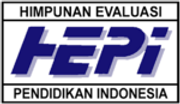The Use of Concrete Media in Science Learning in Inquiry to Improve Science Process Skills for Simple Machine subject
Abstract
This study aims to determine the improvement of science process skills with the media using concrete in science learning by inquiry. The study was conducted using a quasi-experimental design with a nonequivalent control group design. In the experimental group applied to learn to utilize concrete media in learning science in an inquiry, while the control class applied to conventional learning utilizing audio-visual media. Subject: The study included 60 students of class V Elementary School performances in Purwakarta district. The test results for the normalization gain skills enhancement process gain values obtained experimental class (N-gain 0.46) is greater than the value of the class gain control (N-gain 0.17). Based on the test results mean difference two improvements by using the t-test, obtained t = 2.688 > table = 2.045, with sig. 0.012 < α < 0.05 then H0 is rejected and Ha. Therefore, inquiry science learning by utilizing concrete media can significantly improve students' science process skills.
Keywords
Full Text:
PDFReferences
Ananda, R., & Fadhilaturrahmi. (2018). Peningkatan Kemampuan Sosial Emosional Melalui Permainan Kolaboratif pada Anak KB. Jurnal Obsesi: Jurnal Pendidikan Anak Usia Dini, 2(1), 20-26.
Dewi, L. P. P. (2018). Penerapan Model Pembelajaran Quantum Teaching berbantuan Media Konkret untuk Meningkatkan Hasil Belajar IPA. Journal of Education Action Reseach, 2(1), 23-29. https://doi.org/http://dx.doi.org/10.23887/jear.v2i1.13727
Duruk, U., Akgün, A., Doğan, C., & Gülsuyu, F. (2017). Examining the Learning Outcomes Included in the Turkish Science Curriculum in Terms of Science Process Skills: A Document Analysis with Standards-Based Assessment. International Journal of Environmental & Science Education, 12(2), 117-142.
Erlinayaumas, N., Syafril, S., Noor, N. M., Mahmud, Z., Umar, J., Wekke, I. S., & Rahayu, T. (2018). The Importance of Counselling Basic Skills for the Counsellors. International Journal of Pure and Applied Mathematics, 119(18), 1195-1207.
Franestian, I., Suyanta, & Wiyono, A. (2020). Analysis problem solving skills of student in Junior High. In Journal of Physics: Conference Series (p. 1440). https://doi.org/10.1088/1742-6596/1440/1/012089
Hardini, A. T. A., & Akmal, A. (2017). Penerapan Metode Snowball Throwing berbantuan Media Konkret untuk Meningkatkan Keaktifan dan Hasil Belajar IPA Siswa Kelas IV Sekolah Dasar. Jurnal Pendidikan Dasar PerKhasa, 3(April), 233-245.
Konita, A. P., Suyanto, I., & Suhartono. (2015). Penggunaan Model Project Based Learning dengan Media Benda Konkret dalam Peningkatan Pembelajaran IPA pada Siswa Kelas IV SDN Pucung Kidul 03 Tahun Ajaran 2014/2015. Kalam Cendekia, 3(1), 167-169.
Martiningsih, I., Mulyani, S., & Susilowati, E. (2019). Journal of Innovative Science Education Development of Module Based on Scientific Contextual Additives Material to Increase Learning Outcomes and Science Process Skills in Junior High School. Journal of Innovative Science Education, 8(2), 128-137. https://doi.org/DOI 10.15294/JISE.V0I0.27790
Ngurah, D., & Laksana, L. (2017). The Effectiveness of Inquity Based Learning for Natural Science Learning in Elementary School. Journal of Education Technology, 1(1), 1-5. https://doi.org/http://dx.doi.org/10.23887/jet.v1i1.10077
Peyrefitte, M., & Lazar, G. (2018). Student-centered Pedagogy and Real-world Research : Using Documents as Sources of Data in Teaching Social Science Skills and Methods. https://doi.org/10.1177/0092055X17727835
Rambousek, V., Štípek, J., & Vaňková, P. (2016). Contents of Digital Literacy from the Perspective of Teachers and Pupils. Procedia - Social and Behavioral Sciences, 217, 354-362.
Shahali, E. H. M., Halim, L., Treagust, D. F., Won, M., & Chandrasegaran, A. L. (2015). Primary School Teachers’ Understanding of Science Process Skills in Relation to Their Teaching Qualifications and Teaching Experience. Research Science in Education, 47, 257–281. https://doi.org/10.1007/s11165-015-9500-z
Soto, M., & Ambrose, R. (2016). Screencasts: Formative Assessment for Mathematical Thinking. Technology, Knowledge and Learning, 21(2), 277-283. https://doi.org/10.1007/s10758-015-9272-6
Staddon, J. (2017). Theoretical Behaviorism. In In Behavior and Philosophy (217-241).
Suduc, A., Bizoi, M., & Gorghiu, G. (2015). Inquiry Based Science Learning in Primary Education. Procedia - Social and Behavioral Sciences, 205(May), 474-479. https://doi.org/10.1016/j.sbspro.2015.09.044
Susialita, T. (2016). The Development of Audio-Visual Student Portofolios (LKS) Contextual Teaching and Learning-Based (CTL) on Sound Chapter of Science Subject for Deaf Students. Jurnal Pendidikan IPA Indonesia, 5(2), 192-198. https://doi.org/10.15294/jpii.v5i2.6734
Unver, S. K. (2018). Views of Mathematics Student Teachers on Teacher Insights into the Teaching Process. International Journal of Instruction, 11(4), 689-700.
Wati, W., & Novianti. (2016). Pengembangan Rubrik Asesmen Keterampilan Proses Sains Pada Pembelajaran IPA SMP. Jurnal Ilmiah Pendidikan Fisika A;-Biruni, 05(1), 131-140. https://doi.org/10.24042/jpifalbiruni.v5i1.113
Yustina, K. (2017). The Implementation of Constructivism-based Student Worksheets within The Theme “The Prevention of Land and Forest Fire” in Science Education for Seventh Graders in Riau. Jurnal Pendidikan IPA Indonesia, 6(2), 298-305.
Zulkarnaen, Imam Supardi ZA, B. J. (2017). Feasibility of Creative Exploration, Creative Modeling, Practice Scientific Creativity, Discussion, Reflection (C3PDR) Teaching Model to Improve Students’ Scientific Creativity of Junior High School. Journal of Baltic Science Education, 16(6), 1020-1034.
DOI: https://doi.org/10.18326/mdr.v12i1.1-17
Refbacks
- There are currently no refbacks.
Copyright (c) 2020 Muhamad Taufik Bintang Kejora

This work is licensed under a Creative Commons Attribution 4.0 International License.

This work is licensed under a Creative Commons Attribution 4.0 International License.
Program Studi Pendidikan Guru Madrasah Ibtidaiyah (PGMI)
Universitas Islam Negeri (UIN) Salatiga, Indonesia
Jl. Lingkar Salatiga Km. 2 Pulutan, Sidorejo, Kota Salatiga, Jawa Tengah 50716,
Telp. (0298) 323706 – Fax. (0298) 323433
Technical Support: jurnalmudarrisa@iainsalatiga.ac.id
P-ISSN: 2085-2061
E-ISSN: 2541-3457




